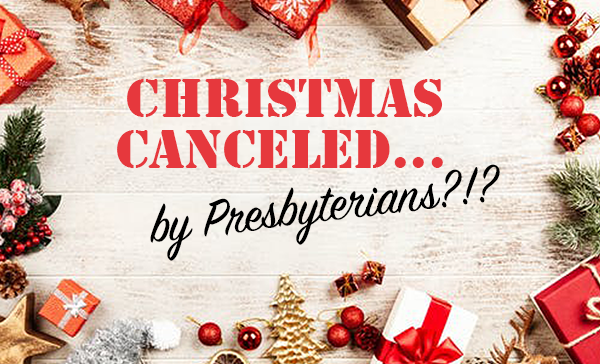
As we continue in this second week of Advent, the Christmas season likely feels a bit weightier this year. Some of the Christmas songs that have been playing by a particular office member, since October I might add, don’t ring quite as true in 2020. Many of us won’t be Home for the Holidays, and we don’t really feel like A Holly, Jolly Christmas. Christmas is so much more than the cultural customs, the wreaths, trees, decorations, and food. Christmas is about relationships. It is ultimately about God’s zealous pursuit of His people through the arrival of the divine Logos in flesh. The incarnation marked the destruction of death, sin, and sickness, including plagues. So when we hear our political leaders and health care professionals encouraging us to limit contact with friends and family, we should feel the weightiness. Perhaps Elvis Presley was right, “I’ll have a Blue Christmas without you.”
This year Christmas may feel disappointing but a only few centuries ago the holiday was made illegal by Presbyterians! The year was 1647. Throughout the Commonwealth of England, Scotland, and Ireland, the Protestant Presbyterian-filled, Puritan Parliament (say that three times fast) officially outlawed the Christmas holiday. Businesses were forced to remain open. Carol singing and public gatherings were banned. Christmas participants could even be arrested!
Why would the Puritans do such a thing? They believed the holy feast days that were celebrated by the Church of England and Roman Catholics were problematic. In the 17th century, Christmas was celebrated for twelve days (from where we get The Twelve Days of Christmas). During this time, local revelers wouldn’t simply feast and enjoy the pleasant company of friends and family. While there were worship services to attend and an increase of generosity towards the poor, Puritan leaders became concerned about an increase of gambling, excessive drinking, extended leisure, and more open and flagrant sexual immorality. In addition, the Puritans believed that these festivals originated through tradition, not Scripture. They banned the celebration of Christmas to encourage a contemplative season of fasting and humility. The result of such bans led to riots in which rioters vandalized homes with holly decorations. The ban was eventually overturned when the monarchy was restored to authority. Many Puritans carried this same ban to the New England colonies.
As we consider the actions of our forebearers, we must remember that a major contextual concern for the Puritans was the secularization of something holy. This secularization continues. We ought to be weary of Christmas being used in marketing ads. It should make us uncomfortable to hear in Hallmark movies that the Spirit of Christmas is “in our hearts” or “in a good feeling”. We shouldn’t be content to miss worship on Sunday mornings in preference for an annual Christmas Eve service.
At the same time, we should not prohibit ourselves from honoring Christ. His incarnation reminds us of His faithful love. Christmas, in its proper context, refocuses our hearts on how much we have benefited by God’s grace, not our works. Lastly, in Advent we are encouraged to spend extra time prayerfully laboring over God’s Word, particularly this year, as we lament the lack of presence from our friends and families. And if your heart has been numbed or dull due to the effects of COVID on our Heavenly Father’s world, then spend time dwelling on the worthiness of Christ and His dutiful love in becoming a man of sorrows for you. One day we will see the glory of Jesus and the beauty of what is described in Revelation 4.8-11:
8 And the four living creatures, each of them with six wings, are full of eyes all around and within, and day and night they never cease to say, "Holy, holy, holy, is the Lord God Almighty, who was and is and is to come!" 9 And whenever the living creatures give glory and honor and thanks to him who is seated on the throne, who lives forever and ever, 10 the twenty-four elders fall down before him who is seated on the throne and worship him who lives forever and ever. They cast their crowns before the throne, saying, 11 "Worthy are you, our Lord and God, to receive glory and honor and power, for you created all things, and by your will they existed and were created."
~ Pastor Bennett







